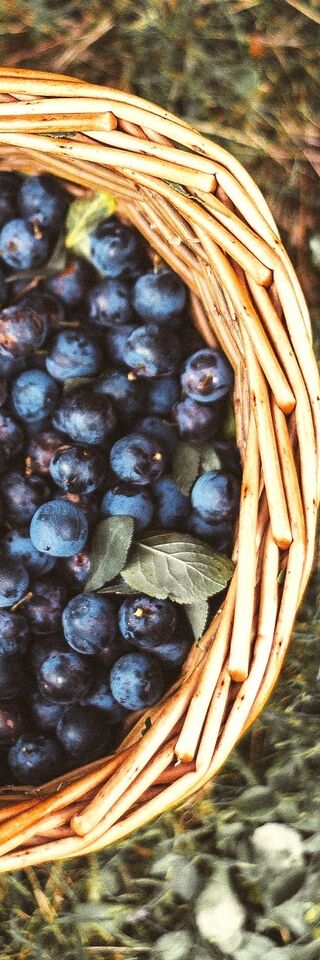It's that time of year when there is food for free all around you... but how do you start foraging safely? Here are our top tips:
- Never eat anything unless you are totally sure what it is. Ideally take someone with you who can help verify the plant, or use a reputable foraging book or app to help you. Some things are pretty unmistakeable, like blackberries and nettles, but others such as cow parsley and wild carrot can have some very deadly lookalikes!
- Build your confidence with what you do know. Dandelions, nettles, damsons are all very versatile plants which you can find just about everywhere and have many different uses.
- Try a little bit to start with. Just because the experts say it is edible and the books say it is edible doesn't mean it will always agree with you. Our modern diets have become so narrow in terms of varieties of food groups that it's a good idea to start small and see how you feel after eating something before devouring a ton!
- Be mindful of potential hazards and contamination. Never pick from the side of busy polluted roads or the side of tracks at dog cocking height! Also be aware of where farmers may have sprayed their fields and hedgerows before you start to forage.
- Only take what you need. Make sure you leave a plentiful supply of what you are picking for other wildlife. Birds and small mammals are reliant on nature's bounty to build up their stores to see them through the winter so always leave enough for them.
- Get yourself a good book or app. There are lots of great resources out there which can help you navigate the wild world of edible plants. We love Roger Phillips' guides and Robin Harwood (Eat Weeds). The app 'Seek' can help you identify species by taking a photo from your phone.
- Avoid mushrooms. As a general rule, unless you are with a highly experienced mycologist, the benefits of getting a few edible mushrooms do not outweigh the risks of getting it wrong. Best to avoid.
- Stay within the law. There are laws covering foraging which makes it illegal to collect wild plants or fungi on a national nature reserve or a site of special scientific interest (SSSI) without the permission of Natural England. Some plants are also protected and are illegal to pick without a special licence.
- Befriend a forager. If you are lucky enough to have someone who lives near you who is happy for you to tag along while they are foraging then this is a wonderful way to immerse yourself in wild foods and their uses. Nothing quite beats learning first hand from an expert in the field.
- Join a foraging course. There are lots of great and inexpensive courses out there which will help you to expand your knowledge and give you a chance to try new wild foods in a safe environment. We will be running an Autumn Foraging Workshop here at The Forge on the 18th September. Why not come along and join Living Wild UK for this afternoon of learning and creating with the wild foods we have here at The Forge. It's just £45 per person of £60 for a family ticket.
